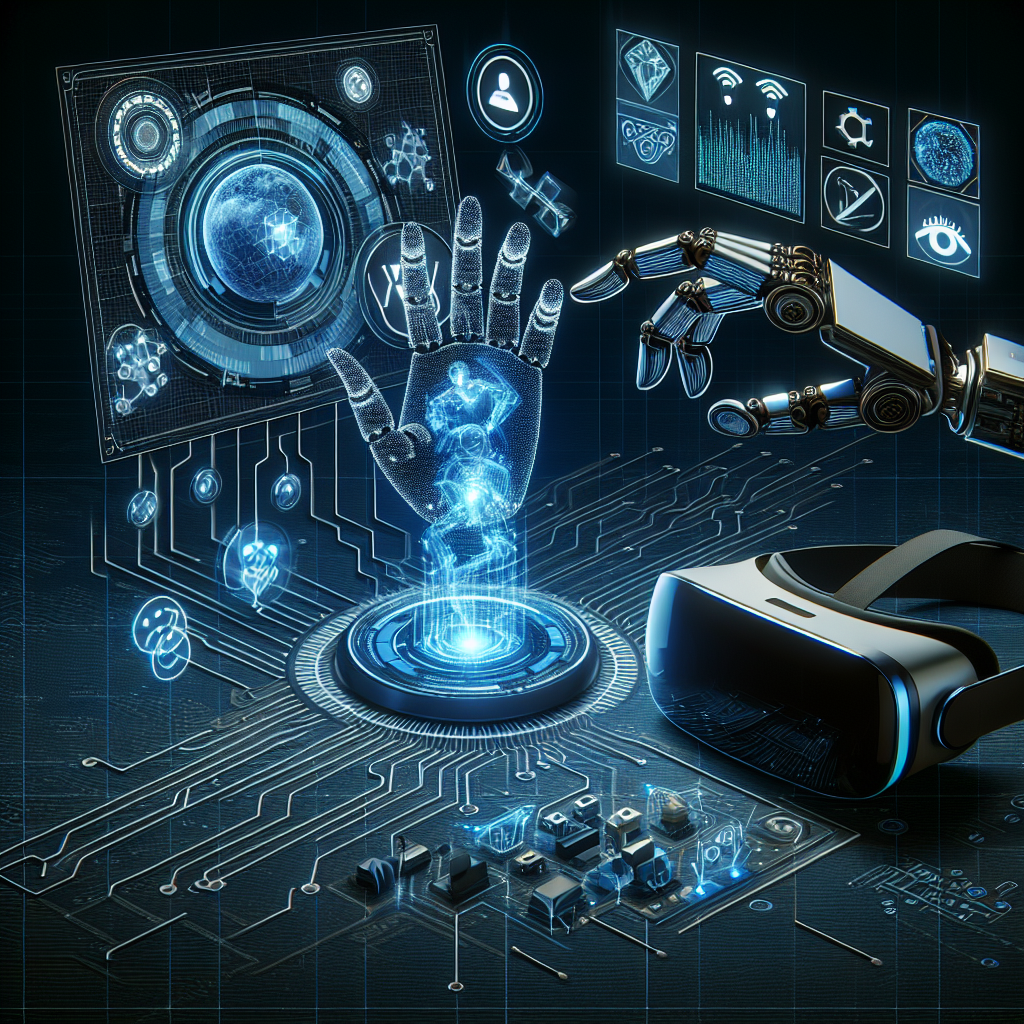The Future of AI Automation in Video Gaming and Virtual Reality
Artificial Intelligence (AI) has already made a significant impact on the video gaming industry, with AI-powered bots and algorithms enhancing gameplay experiences for players around the world. As technology continues to evolve, the future of AI automation in video gaming and virtual reality is poised to revolutionize the way we interact with virtual worlds and characters.
AI Automation in Video Gaming
AI automation in video gaming refers to the use of artificial intelligence to automate various aspects of gameplay, from controlling non-playable characters (NPCs) to optimizing game environments and mechanics. AI-powered bots can provide players with challenging opponents, adapt to their playing style, and create dynamic and engaging experiences.
One of the most significant advancements in AI automation in video gaming is the development of machine learning algorithms that can continuously improve and adapt to player behavior. These algorithms can analyze vast amounts of data to predict player actions, optimize game difficulty levels, and create personalized experiences for each player.
AI automation in video gaming also extends to game development, with AI algorithms being used to automate tasks such as level design, character animation, and game testing. This allows developers to create more complex and immersive games in less time, freeing up resources to focus on other aspects of game development.
Virtual Reality and AI Automation
Virtual reality (VR) is another technology that is poised to benefit from AI automation in the gaming industry. AI-powered algorithms can enhance VR experiences by creating more realistic and immersive environments, optimizing gameplay mechanics, and providing players with personalized experiences.
AI automation in VR can also improve player interactions with NPCs, creating more lifelike characters that respond to player actions in real-time. This can make VR experiences more engaging and dynamic, blurring the lines between the virtual world and reality.
One of the key challenges in AI automation in VR is the need to create algorithms that can adapt to the unique constraints of VR environments, such as limited processing power and the need for real-time interactions. However, advances in AI technology are making it possible to overcome these challenges and create more immersive and engaging VR experiences.
The Future of AI Automation in Video Gaming and VR
The future of AI automation in video gaming and VR promises to be both exciting and transformative. As AI technology continues to evolve, we can expect to see more intelligent and adaptive game experiences that respond to player actions in real-time, creating more immersive and engaging gameplay experiences.
Some of the key trends that we can expect to see in the future of AI automation in video gaming and VR include:
1. Personalized Gameplay Experiences: AI algorithms will be used to create personalized gameplay experiences for each player, adapting to their playing style, preferences, and skill level.
2. Enhanced NPC Interactions: AI-powered NPCs will become more intelligent and lifelike, responding to player actions in real-time and creating more dynamic and engaging interactions.
3. Realistic Environments: AI algorithms will be used to create more realistic and immersive game environments, with dynamic weather systems, lifelike character animations, and interactive objects.
4. Procedural Content Generation: AI algorithms will be used to automate tasks such as level design, character animation, and game testing, allowing developers to create more complex and immersive games in less time.
5. Adaptive Difficulty Levels: AI algorithms will be used to dynamically adjust game difficulty levels based on player performance, creating more challenging and engaging gameplay experiences.
FAQs
Q: Will AI automation in video gaming and VR replace human game developers?
A: While AI automation in video gaming and VR is poised to revolutionize the industry, it is unlikely to replace human game developers entirely. AI algorithms can automate certain tasks such as level design and character animation, but human creativity and ingenuity are still essential for creating immersive and engaging gameplay experiences.
Q: How will AI automation in video gaming and VR impact the player experience?
A: AI automation in video gaming and VR is expected to enhance the player experience by creating more personalized, dynamic, and immersive gameplay experiences. AI algorithms can adapt to player behavior in real-time, creating more challenging and engaging gameplay experiences that respond to player actions.
Q: What are some of the challenges of AI automation in video gaming and VR?
A: Some of the key challenges of AI automation in video gaming and VR include creating algorithms that can adapt to the unique constraints of VR environments, such as limited processing power and the need for real-time interactions. Additionally, ensuring that AI-powered NPCs are intelligent and lifelike can be a challenge, as creating realistic interactions between players and NPCs requires advanced AI algorithms.
In conclusion, the future of AI automation in video gaming and VR promises to be both exciting and transformative. AI-powered algorithms will create more personalized and immersive gameplay experiences, enhancing player interactions with NPCs, creating more lifelike game environments, and optimizing gameplay mechanics. While there are challenges to overcome, advances in AI technology are making it possible to create more engaging and dynamic game experiences that blur the lines between the virtual world and reality.

